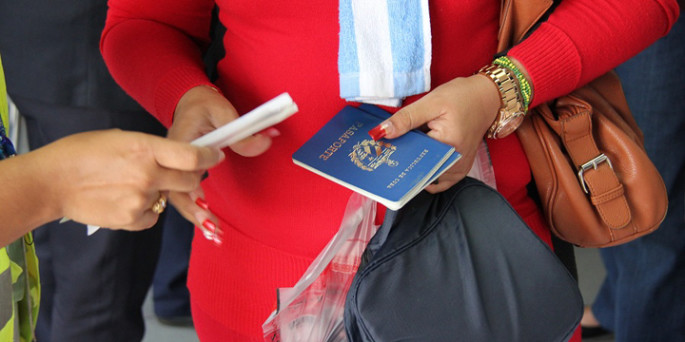
Cuban passport: an unnecessary impediment (Part II)
SEATTLE — The Cuban passport is one of the most problematic documents with which Cubans living outside Cuba must deal.
The émigré’s complaints about this topic range from its financial burden (obtaining and renewing the passport are expensive chores) to its legal and practical values (a passport is required even from those who have adopted another nationality.)
The Cuban government, which in recent years has taken steps to update its migration policy, should make the passport’s acquisition more accessible.
At the same time, it should exempt from its need those Cuban-born individuals who, after adopting another nationality, hold a passport issued by their adoptive country.
But, with regard to that, there’s even a lack of consistency in the migratory regulations. For the Cuban natives who are citizens of another country, the rules are not uniform.
For example, Cubans who left their homeland before Dec. 31, 1970 (and today enjoy another nationality) are not required to have a Cuban passport to visit the island.
On the other hand, this provision, which has been in effect for many years, demands that anyone who left Cuba after 1970 is obligated to use a Cuban passport to enter the island, even if they are naturalized citizens of another country and hold its passport.
What is the logic behind these regulations? Why is there a dividing line between those who left before and after 1970? Why are certain Cubans allowed to enter Cuba with the passport of their adoptive country and others not?
It is not easy to find answers to these questions. The bureaucratic reasons that link the passport used by Cubans to visit Cuba with the date on which they left the country (especially if that date goes back more than four decades) are not clear.
Maybe that ossified rule, which discriminates the type of passport used by citizens of Cuban origin) had a purpose in the past. What is clear is that it needs to be reviewed by the Cuban authorities and, if necessary, updated. In other words, brought into line with the interests and needs of the nation and its émigrés.
A book I read a long time ago could serve as a parable for this article. Uruguayan writer Eduardo Galeano, in one of his tales, tells the story of “the bench guard.”
At an army barracks, for more than 30 years, the soldiers stood 24-hour guard next to a small bench. Nobody knew why, but the guard was changed dutifully every hour. Year after year, the officers issued the order and the soldiers obeyed it. According to the story, in 30 years nobody asked for the reason for that vigil. If soldiers were posted next to the bench, there must have been a reason.
One day, someone asked about the reasons for that vigil, which seemed to make no sense. After much investigating, it was learned that three decades earlier an officer had ordered a soldier to stand guard next to the newly painted bench, so that no one might sit on the fresh paint. After the paint dried, nobody had bothered to cancel the order.
I suspect that something similar to “the bench guard” could be happening with this regulation. This archaic and clearly arbitrary statute that limits the use of foreign passports by Cuban-born persons should be reviewed.
Maybe in its days it had some justification that — after so many decades — nobody remembers. By now, that order does not seem to make much sense.
Therefore, it should be amended, updated or improved with a coat of fresh paint. One thing, though: make sure they use quick-drying paint.
Carlos Lazo is a schoolteacher in the Seattle, Wash., area. During the Bush Jr. presidency, he became well known as the Cuban-American combat medic who served with distinction in Iraq but was barred from visiting his children in Cuba due to the restrictions on travel that the Bush administration was using to stop Cuban-Americans from visiting their families on the island.
Progreso Semanal/ Weekly authorizes the total or partial reproduction of the articles by our journalists, so long as source and author are identified.

